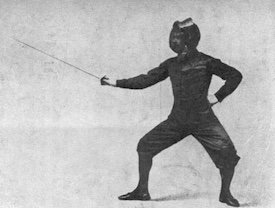same here..
I'm too lazy to bother ABX-testing most things..
Which is fine. However, if one is going to make assertions about sound or the performance of audio equipment then DBT/ABX is generally necessary, otherwise one’s assertions are very likely to be wrong because the assertions actually pertain to one’s biased perception rather than the sound or equipment performance. Additionally, it’s a somewhat different proposition not bothering to DBT/ABX if one has done many DBTs over the course of many years as opposed to not bothering having never done any or only having done a few. It’s a very illuminating process which tells us a lot about ourselves/our hearing/perception. You can pick some of this up if you carefully read numerous formal DBT/ABX but it really sinks in when you experience it yourself. It’s very common to hear differences where in fact the differences are inaudible, even very clear obvious differences that you’re sure of. Often those differences largely disappear when the test is blind and far harder or impossible to differentiate. So even before the test is over, you have a good idea your perception was playing tricks. However, occasionally you still clearly hear differences during the blind portion of the test and it’s not until you see your results (when they indicate random chance/guessing) that you realise it’s all in your head.
If I end up enjoying something, that's enough
It’s enough for that instant in time but it’s not enough in two other circumstances/senses: As mentioned above, it’s not enough if one is going to make assertions about audio equipment performance or sound. Secondly, it’s almost inevitable that some portion of “enjoying something” is due to one or more biases and biases are liable to change. Sometimes they don’t change but most commonly they do, occasionally after just a moment or two but other times after days, weeks or many months and while typically not ruining our enjoyment, this can lessen the enjoyment. Almost anything can change our biases, maybe a particularly flowery or well written review of our or some new product, maybe the weight of testimonials or maybe some fact or even science we weren’t previously aware of. We don’t even have to entirely believe it, just being aware of it is sometimes enough and, this doesn’t necessarily occur just once but over and over. This is the basis of what many audiophiles call “upgradeitis“, because they’re not really upgrading, they’re actually just cross-grading or commonly even marginally downgrading. What they’re doing materially but subconsciously is downgrading their previous perception and/or upgrading their current/new perception due to evolving biases. That’s why we see such a plethora of snake oil audiophile products (audiophile fuses, capacitors, cables, network switches, etc.) none of which make any audible difference to equipment performance or the sound but can make a substantial difference to our biases and therefore perception.
If it gives me frisson and induces tears.. it gets a pass.
What gives you “
frisson and induces tears” is your human perception. Audio equipment and digital files don’t have any human perception, they have no “frisson” and can’t induce tears, although I once dropped a heavy speaker on my foot that did induce tears (and a significant amount of swearing)! So the question is: Is there some audible difference in the audio equipment/sound that is creating biases that our perception responds to in this way or is it something else creating those biases, say visual appearance, some knowledge such as brand name or price, or some other factor, such as mood?
Personally, when evaluating equipment (and/or resultant sound) I try to do the exact opposite to the above. I do my best to avoid enjoyment, “frisson and inducing tears“ having any influence on my judgement/evaluation, let alone being ”
enough” or “
getting a pass” based on it. This is because enjoyment, frisson and inducing tears can be so heavily influenced by so many factors that have little or nothing to do with different equipment performance/sound and are highly variable from day to day. For example, I can listen to a sad piece of music one day and feel somewhat sad, the next day I might have remembered some sad event and associate it with that piece of music (or just feel somewhat more “down” than the previous day) which multiplies that emotional response and now induces tears rather than just a “somewhat sad” response. This obviously has nothing to do with differences in equipment performance or sound and everything to do with my state of mind at that point in time, which will probably be at least somewhat different at another point in time. So I try to avoid all this constantly differing minefield and try to evaluate more objective qualities, such as accuracy/fidelity.
G

























